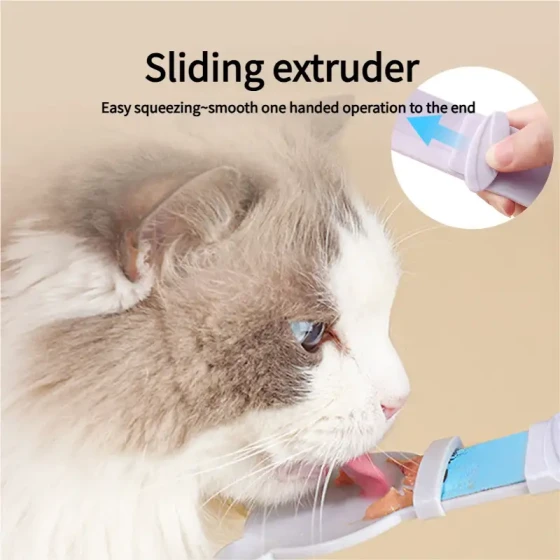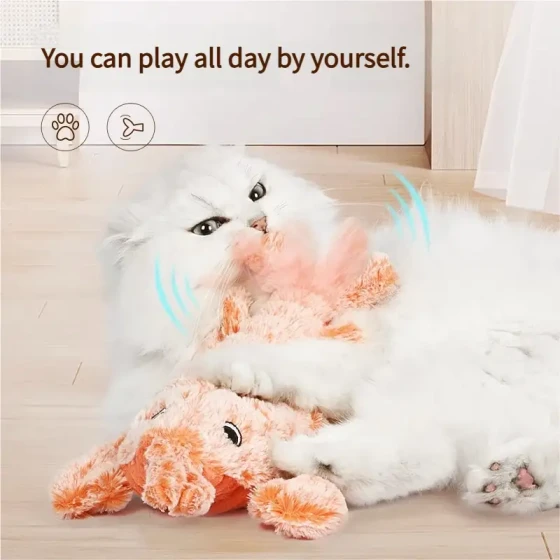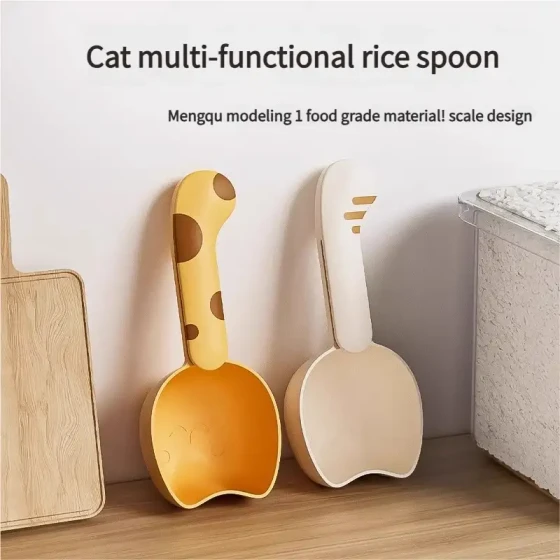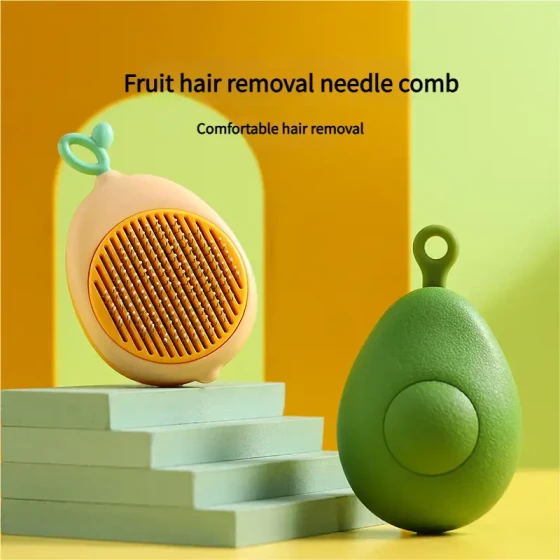Which Cat Internal Deworming Medicine is Better_Internal Deworming Medicine Buying Guide
Raising a cat may seem simple—just scoop the litter, feed, and play daily. But once you dive in, you’ll find there's a lot to learn, especially regarding cat health. Internal deworming is an unavoidable challenge in cat ownership. Many think, “My cat never goes outside, is clean, where would parasites come from?” This is a big misconception! Parasites aren’t only outdoors; we can bring eggs home unknowingly, cross-infections happen, and some parasites are congenital. All these can silently threaten your cat’s health. As the saying goes, “Though it looks peaceful, there may be a 'war of worms' raging inside that small body.”
So, which internal deworming medicine for cats is actually good? Faced with myriad brands and promotions, cat owners often feel confused. Don’t worry; today we’ll sort this out to help you find the perfect “magic cure” for your feline master.

Who are the “uninvited guests” inside cats?
Before discussing deworming medicines, let’s understand common internal parasites in cats. Know your enemy to win every battle. Common internal parasites mainly fall into two categories: worms and protozoa.
- Worms: These are more familiar.
- Roundworms: The most common intestinal parasite especially in kittens, with a high infection rate. They absorb nutrients in the intestine, causing weight loss, abdominal swelling, vomiting, and worms may be seen in vomit or feces. Severe infections may lead to intestinal blockage in kittens. Note that roundworm eggs can survive long in the environment, and mother cats can transmit them through nursing.
- Hookworms: Small parasites that attach to the intestinal wall and suck blood, causing anemia, weight loss, diarrhea, and even bloody stool. Infection can occur through skin penetration or oral ingestion.
- Tapeworms: Tapeworm segments look like rice grains or cucumber seeds and can be seen around the cat’s anus or in feces. Cats usually get infected by ingesting fleas carrying tapeworm larvae or hunting rodents. Severe infections may cause abdominal swelling and diarrhea.
- Whipworms: Less common, mainly parasitize the large intestine; heavy infections can cause diarrhea.
- Heartworms: Despite the name, larvae parasitize other tissues, with adults mainly in the right heart ventricle, potentially causing vomiting, lack of appetite, lethargy, and persistent cough.
- Toxoplasma gondii: A single-celled protozoan transmitted through ingestion of infected food, which may cause fever and cold-like symptoms. It poses risks to immunocompromised cats and humans, especially pregnant women.
- Protozoa: Single-celled organisms.
- Giardia: Parasites in the small intestine causing diarrhea, weight loss, even dehydration. Mainly infects through ingesting contaminated water, food, or licking contaminated fur.
- Coccidia: Parasites in the intestinal epithelial cells causing diarrhea. Infected kittens may have fever, loss of appetite, bloody diarrhea, dehydration, and even death. Infection can occur by ingesting infected feces or prey animals carrying parasites.
Seeing this, isn’t it shocking? Even clean indoor cats aren’t spared from parasites. Regular deworming is not an exaggeration.
The “ins and outs” of deworming medicines
Knowing your enemy’s types, next comes choosing the “weapon.” There are many types of internal cat deworming medicines on the market, which can be overwhelming. Their differences mainly lie in active ingredients and targeted parasites. Ingredients are key when choosing dewormers.
Common active ingredients in internal dewormers include:
- Praziquantel: Highly effective against tapeworms, the first choice for tapeworm infections.
- Fenbendazole: A broad-spectrum dewormer effective against roundworms, hookworms, whipworms, and even Giardia.
- Pyrantel Pamoate: Effective against roundworms and hookworms.
- Milbemycin Oxime: Effective against roundworms, hookworms, whipworms, and heartworm larvae. Often combined with praziquantel for broader spectrum.
- Moxidectin: Broad-spectrum against many nematodes, commonly used for heartworm prevention.
- Ivermectin: Broad-spectrum against multiple internal and external parasites, but may pose risks for certain cat breeds with specific genetic vulnerabilities.
Some medicines target specific parasites like only tapeworms or only nematodes, while others are broad-spectrum attacking multiple parasites inside and outside. For indoor cats without clear infection evidence, broad-spectrum internal or combined internal-external dewormers are usually recommended for comprehensive protection.
How about the “legendary” deworming medicine brands?
There are many well-known cat deworming brands, each with star products and focuses. Here are some widely discussed ones (in no particular order):
- Revolution: An internal and external application spot-on with Selamectin as main ingredient. Effective against roundworms, hookworms, heartworms, fleas, and ear mites. Convenient and gentle, suitable for kittens. Note it is ineffective against tapeworms and ticks.
- Advocate: Also an internal and external spot-on with Moxidectin and Imidacloprid. Effective against roundworms, hookworms, whipworms, heartworm larvae, fleas, and ear mites. Similar convenience as Revolution but does not cover tapeworms and ticks.
- Broadline: Another internal-external spot-on with diverse ingredients including Abamectin, Praziquantel, Fipronil, Methoprene. It kills fleas, ticks, roundworms, hookworms, tapeworms, including flea eggs and larvae. It is one of the few internal-external products covering tapeworms and ticks simultaneously. Typically recommended for cats slightly older than those for Revolution and Advocate.
- Drontal (Bayer product): Bayer’s classic oral tablet with Praziquantel and Pyrantel Pamoate as main components, effective against roundworms, hookworms, tapeworms. It has a broad, targeted spectrum for common internal parasites. Bayer also offers external parasiticides for full protection.
- Milbemax (Hai Le Chong): By Hai Zheng Animal Health, oral tablets with Milbemycin Oxime and Praziquantel. Effective against roundworms, hookworms, tapeworms, whipworms, heartworms, reportedly effective against ear mites as well. Small granules have good palatability.
Overall, choose based on your cat’s specific condition:
- If your cat is strictly indoor with a clean environment and no flea problems, mainly concerned about common roundworms and tapeworms, then internal dewormers covering these parasites like Bayer’s Drontal or Milbemax are advisable.
- If you want all-in-one preventive coverage for both internal and external parasites, and your cat doesn’t resist spot-ons, Revolution, Advocate, or Broadline are good picks. Especially Broadline if you worry about tapeworms and ticks due to its wider coverage.
- If your cat goes outside, or your household has multiple pets (including dogs), or you have flea issues, then combined internal-external or separate internal and external deworming (with appropriate products) is a safer choice.
Of course, it’s best to consult a professional vet for personalized advice based on your cat’s age, weight, health, environment, and local parasite prevalence.
How often should deworming be done?
The frequency of deworming is another common dilemma among cat owners. There’s no one-size-fits-all answer and it needs to be adjusted according to your cat’s situation.
- Kittens (under 6 months): Immune systems are immature, with risks from mother’s milk and environment. First deworming is advised at 6-8 weeks, then every 2-4 weeks until 6 months old.
- Adult cats (6 months and older):
- Strict indoor cats with clean environments and no raw meat consumption: The interval can be extended to deworming every 3-6 months. However, indoor cats may still carry risk as humans can bring parasite eggs home.
- Outdoor cats, free-ranging, hunting-loving, multi-pet homes or areas with many mosquitoes: These cats have higher parasite exposure risk, and monthly internal-external deworming is recommended. The European Scientific Counsel Companion Animal Parasites (ESCAAP) advises free-ranging cats be dewormed monthly.
External deworming (usually unnecessary if using combined internal-external products) is generally required more frequently, typically monthly, especially during flea and tick seasons.
Remember, these are general guidelines, and the most accurate frequency should come from vet recommendations based on your cat’s specific condition.
How to administer deworming medicine? Tips and precautions
Giving cats medication is often a “human-cat battle.” Oral tablets are often cleverly avoided by your “Oscar-worthy” cat, and spot-ons sometimes worry about incomplete dosing or licking off. Here are some tips:
- Oral tablets:
- Hide in food: Many cats cannot resist food, so hide the pill in favorite treats, canned food, or meat paste. Note some pills have strong taste that cats might detect.
- Crush and mix: For large or clever cats, crush the pill into powder and mix with small amounts of favorite food.
- Pill gun: For stubborn cats, use a pill gun to place the pill deep in the mouth, then gently lift the head to aid swallowing.
- Encapsulating: If pill taste is strong, put it in an empty capsule before feeding.
- Spot-ons:
- Apply where cat can’t lick: Usually between the shoulder blades on the back of the neck. Part the fur to apply directly on the skin.
- Supervise after application: Watch the cat for at least 15-30 minutes to prevent licking the medicine, which could affect efficacy or cause discomfort. Use an Elizabethan collar if necessary.
Important precautions:
- Strictly follow instructions and vet guidance: Different dewormers have different dosages and usage; follow the vet’s advice, do not arbitrarily change dose or frequency.
- Buy from official channels: Ensure authentic products, avoid counterfeit that may be ineffective or harmful.
- Observe cat’s reactions: Some cats may experience mild side effects like lethargy, drowsiness, decreased appetite, vomiting, soft stool, or mild diarrhea. These are normal and usually subside in a day or two. Consult the vet if severe or persistent.
- Fasting requirements: Some dewormers need to be given after meals or on an empty stomach; check instructions or consult your vet.
- Caution for cats with underlying diseases: Cats with heart, liver diseases, or poor health should see a vet before using dewormers.
- Keep out of children’s reach: Dewormers are medicines; store safely. Avoid child contact with spot-on application areas until dry.
“Vaccination” beyond deworming
Besides regular deworming, daily preventive measures are equally important to minimize infection risk:
- Keep environment clean: Regularly clean cats’ living areas, litter boxes, food and water bowls, and promptly remove feces. Parasite eggs survive long in the environment; cleanliness reduces spread.
- Avoid feeding raw meat: Raw meat is a major source of internal parasites like Toxoplasma and tapeworms. Feed cooked or processed food instead.
- Control external parasites: Fleas are key vectors for tapeworms. Regular external parasite control reduces internal parasite risks indirectly.
- Limit outdoor and animal contact: Keep cats indoors as much as possible to avoid contact with parasite carriers. After you return home, change clothes and clean shoes to reduce carrying parasite eggs indoors.
Deworming is a long-term, crucial task impacting both cat and family health. Choosing suitable medicine, correctly using it, and combining with preventive care ensures your cat lives a healthy, worry-free life. Don’t wait for symptoms before regretting; prevention is key. After all, seeing your cat lively and healthy makes every effort worthwhile, doesn’t it?
References:
- Cornell University College of Veterinary Medicine: Gastrointestinal Parasites of Cats.
- Royal Pet Food: Internal parasites of cats.
- American Veterinary Medical Association: Intestinal parasites in cats and dogs.
- NetEase News: Common parasites on cats and how to properly deworm.
- Royal Canin UK: Internal parasites in cats.
- Pet Hospital: Common cat parasites, recommended dewormers, and deworming frequency.
- Cornell University College of Veterinary Medicine: Gastrointestinal Parasites of Cats Brochure.
- Perth Cat Hospital: Intestinal parasites.
- Wikipedia: Cat diseases.
- VIC factory and suppliers: China Albendazole Ivermectin Tablets for Dogs and Cats.
- Elanco: Profender® Dewormer for Cats.
- Tencent News: Common pet parasites health protection...
- VIC: China Best quality China Fenbendazole Pyrantel Pamoate Praziquantel Tablet/Bolus Deworm Veterinary Medicine for Cats Dogs Birds Poultry Animals Pets Medicine.
- Revival Animal Health: Active Ingredients in Wormers.
- Amazon.com: Kilab Dewai Broad Spectrum.
- K9Reproduction: The Essential Active Ingredients in Dewormers for Dogs and Cats.
- Drontal Cat Wormer Tablets.
- Douban: How to deworm cats? Recommended cat dewormers.
- NetEase News: Beginner’s guide for cat care: recommended cat dewormers.
- Amazon.ae: Dewormer for cats & Dogs (1Tablet/10kg).
- Qidian Chinese: Top ten cat deworming medicines rankings.
- Alibaba.com: Cats Dewormer.
- NetEase News: Top ten cat dewormer brand rankings.
- NetEase News: Saving money on cat care!!! Slum girl’s cat care guide.
- Douban: Comparison analysis of cat and dog deworming medicine ingredients.
- QQ News: "My cat never goes out, does it still need deworming?" The answer is yes.
- eBay: Elanco Tapeworm Dewormer Cat.
- Douban: Zhihu Cat Care.
- Taobao: Dog external deworming medicine pet tick spray flea spray for dogs and cats.
- MeinArztbedarf.com: Best choices for cat deworming products.
- Leiling Bio: PHYSICOAT is here (Part 1)|Why can the spot-on on your cat’s neck deworm the whole body.
- NetEase News: Stop using medicines blindly! Cat ear mite treatment is really simple!
- NetEase News: What reactions may happen after cats take deworming medicine?
- Wang Miao Planet: Recommended cat dewormers | Pet Plus, All-purpose Cat, One Pill comparison and side effects.
- Questionnaire Star: Pet deworming product selection and usage survey.
-560x560.webp)



-560x560.webp)
